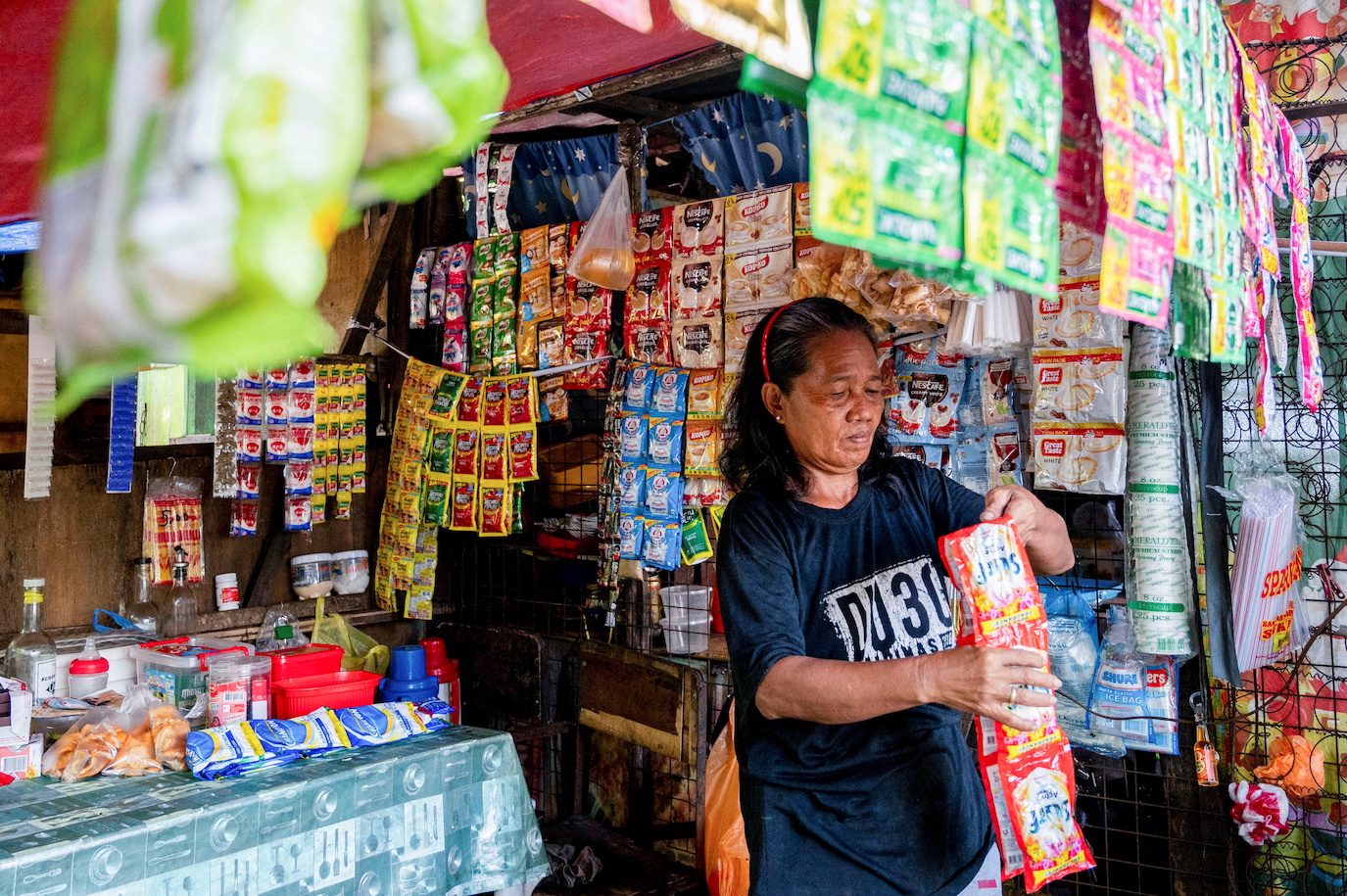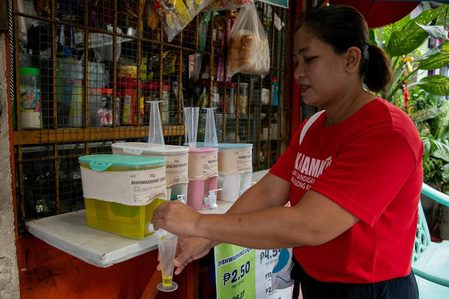SUMMARY
This is AI generated summarization, which may have errors. For context, always refer to the full article.

MANILA, Philippines – The Philippines is “sinking in sachets,” according to a plastic brand audit that covered four countries in Asia.
Based on the 2023 Global Break Free From Plastic Brand Audit conducted by international network Break Free From Plastic (BFFP), the Philippines contributed a third of the total sachet plastic waste collected in four Asian countries in 2023.
“The Philippines is inundated with plastic pollution in part due to the prevailing sachet economy driven primarily by corporations,” said the audit which was released on Wednesday, April 17.
From October 2023 to February 2024, volunteers collected, catalogued, and analyzed 10,801 pieces of sachets from several locations in the Philippines: Metro Manila, Dasmariñas City in Cavite, Davao City, Iloilo City, and E.B. Magalona town in Negros Occidental.
The only area in Metro Manila mentioned in the report was Malabon City.
A total of 33,647 sachets were gathered together in four countries where the Asia-Pacific audit was conducted. The others are India, Vietnam, and Indonesia.
The report, initiated by international network Break Free From Plastic (BFFP), said that 86% of the sachets were used for packaged food items, while the rest were for household and personal care items.
Buying commodities in sachets is often seen as the affordable and accessible option in lower-income communities. The Philippines uses 164 million plastic sachets every day, discarding 59.8 billion sachets per year.
To visualize this, the audit said, “This figure is enough to bury the entire Metropolitan Manila area under a foot of plastic waste.”
However, several issues arise from this dependence on plastic: health hazards, overburdened landfills, and wildlife and environmental harm. These plastic sachets have been found in protected areas, too.
“In Davao City, we have been collecting loads of waste from the Panigan-Tamugan Watershed, the drinking water source of the city, and most of this waste are plastic sachets,” said Mark Peñalver, executive director of Interfacing Development Interventions for Sustainability.
“If we maintain business as usual, the time will come when we will be drinking plastics too,” added Peñalver.
Top sachet polluters
The top polluters in the four countries included in the audit are:
- Unilever (1,851 sachets)
- Wings (1,565 sachets)
- Mayora Indah (1,548 sachets)
- Wadia Group (1,352 sachets)
- Balaji Wafers Private Limited (1,291 sachets)
- Procter & Gamble (1,194 sachets)
- Nestlé (1,171 sachets)
- Yes 2 Healthy Life (1,028 sachets)
- JG Summit Holdings (714 sachets)
- Salim Group (683 sachets)
“All 10 companies are in the business of selling fast-moving consumer goods, primarily processed food and beverage manufacturing, as well as some personal care products,” the report said.
In the Philippines, the top sachet polluters are:
- Yes 2 Healthy Life (1,028 sachets)
- Mayora Indah (902 sachets)
- Procter & Gamble (889 sachets)
- Nestlé (771 sachets)
- JG Summit Holdings (673 sachets)
- Unilever (598 sachets)
- Wings (301 sachets)
- DXN Industries (276 sachets)
- Alliance Global (260 sachets)
- Monde Nissin (250 sachets)
Common types of sachet materials collected in the audit include high density polyethylene (HDPE), polypropylene (PP), polyethylene terephthalate (PET), and low density polyethylene (LDPE).
Call for accountability
In light of this report, which complements the 2023 Global Brand Audit that BFFP released earlier this year, the group called on multinational corporations to phase out sachets, single-use packaging, and reveal data on plastic use.
They also urged companies to invest in reuse, refill, or packaging-free product delivery systems.
“Corporations are driving the plastic crisis in the Philippines, but they can help solve the problem their products create,” Greenpeace Philippines campaigner Marian Ledesma said in a statement.
“They must transition away from single-use plastic right away, starting with sachets, and begin adopting wide-scale reuse and refill models in the Philippines,” she added.
One of the biggest steps towards plastic and waste reduction in the Philippines was the passage of the Extended Producer Responsibility Act of 2022, or Republic Act No. 11898, which aims to hold large product producers, accountable for the plastic waste they put out.
While the law was a “meaningful step,” advocates criticized the law for “lacking ambition.”
“It only requires plastic producers to collect and recycle plastic waste without compelling them to find ways to reduce plastic production and use,” the report said. “The EPR Act lacks bans and plastic reduction targets, and this gap only allows corporations to continue their relentless plastic production.”
Meanwhile, the local governments in San Juan and Quezon City have been experimenting with a refill system in select sari-sari stores to eliminate the use of sachets.
During the launch of the report regarding the refill hubs, Quezon City Mayor Joy Belmonte emphasized the importance of political will in finding affordable, eco-friendly options for the public.
– Rappler.com
Add a comment
How does this make you feel?









![[OPINION] Grading Marcos admin’s performance on the climate agenda](https://www.rappler.com/tachyon/2024/06/grading-marcos-performance-climate-agenda-june-25-2025.jpg?resize=257%2C257&crop=441px%2C0px%2C1080px%2C1080px)
There are no comments yet. Add your comment to start the conversation.